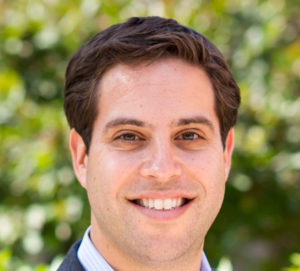Commentary on Parshat Korach (Numbers 16:1 – 18:32)
Anyone who spends time as a leader learns something quickly — leadership involves conflict. The most effective leaders know that at times they will have to confront those who would contend with them. Conflicts arise when the concerns of different people appear to be incompatible. And the real test of leadership is how one addresses the conflicts when they come up.
In this week’s Torah portion, Korach, Datan, and Abiram rise up against Moses, Aaron, and God. This rebellion is the most serious example of Israelites challenging God’s chosen leadership. Throughout the Book of Numbers, all of the rebellions — including this one — fail. In the end, Moses’ role as leader is affirmed, and those who would contend with Moses, Aaron, and God, pay an ultimate price.
Sign up to receive Torah from T’ruah in your inbox each week!
The language that is used to describe the rebellion is significant. In Numbers 16:2-3, we read that the rebels “rose up against Moses” (vayaqumu) and “combined against” him (vayiqahalu). The first verb suggests a certain completeness to their challenge, as in Moses’ setting-up (vayaqem, same verb) of the Mishkan (Tabernacle) in Exodus 40. The second verb makes it sound as if they were establishing their own parallel kahal (congregation), to oppose Moses’. Suddenly, the community is at risk of being split.
As the Torah portion unfolds, Korach describes his contention with the leadership, “You have gone too far! For all the community are holy, all of them, and the Eternal is in their midst. Why then do you raise yourselves above the Eternal’s congregation?” (Numbers 16:3) Moses gives Korach the opportunity to make his case and to test their authority before the entire community. Famously, the rebels and their families pay the ultimate price, as the earth opens up, swallowing them whole, taking them down to Sheol.
This text is meant to disturb. It is extreme to emphasize a point: Conflict is an element of leadership. As the ultimate example of rebellion among the Israelites the core question is this: How are we to deal with conflict when — not if! — it arises?
One answer comes from a prior experience among Moses, Miriam, and Aaron. Two weeks ago, at the end of Parshat Beha’alotecha (Numbers 12), Moses’ siblings speak out against Moses because he married a Cushite woman. But then, their real contention emerges, one not dissimilar from Korach’s: “Has the Eternal spoken only through Moses? Has [God] not spoken through us as well?” (Numbers 12:2) And yet their verb is less aggressive — they (really “she” in the Hebrew) “speak against” Moses (tedabber b-). God hears this, calls the three siblings to appear at the entrance of the Tent of Meeting, makes the case why Moses has special status among them, and then afflicts Miriam with tzara’at, a sort of scaly affliction. Yet, because of the closeness of these siblings, Moses’s reaction is not one of anger. Rather, he calls out, “Please God, heal her!” (Numbers 12:13) When we love those with whom we contend, we can respond to conflict with care and compassion.
 Similarly, the importance of bringing your whole self to a contentious moment is one of the key lessons taught by the Harvard Negotiation Project. In its book Difficult Conversations, it teaches that conflict is resolved through a conversation that may be difficult, political, and strategic. And the goal of a leader who wants to solve one of these difficult conversations is to approach the other with curiosity, courage, and care, and to be ready to make their own contributions to the solution.
Similarly, the importance of bringing your whole self to a contentious moment is one of the key lessons taught by the Harvard Negotiation Project. In its book Difficult Conversations, it teaches that conflict is resolved through a conversation that may be difficult, political, and strategic. And the goal of a leader who wants to solve one of these difficult conversations is to approach the other with curiosity, courage, and care, and to be ready to make their own contributions to the solution.
Towards the end of the book of Numbers, Moses faces a challenge that ends positively, that of Tzelophechad’s daughters. The verbs used there are also different from Korach’s: The five women “come forward” (vatiqravnah) and “stand before Moses” (ta’amodnah). They bring their whole selves to the dispute; in response, perhaps, Moses is able to bring his whole self.
For those leaders who seek justice from a spiritual and political frame, this context can be illustrative. We find ourselves on different sides of contentious moments. We take positions in opposition to others. Sometimes we stand in Moses’s place; other times we may be the rebellious ones. Either way, this week’s Torah portion is an object lesson in conflict, a reminder that it will come whenever we take on leadership, striving for particular goals. The real spiritual test lies in how we as leaders behave around the contention.
Neil P.G. Hirsch is rabbi at Hevreh of Southern Berkshire in Great Barrington, Massachusetts. He is one of the founders of BASIC, a local consortium of faith leaders and human services agencies, working together to meet the communal needs of the immigrant community. He serves on the Reform Movement’s Commission on Social Action, and is currently a co-chair for the movement’s Urgency of Now Campaign for Racial Justice.

